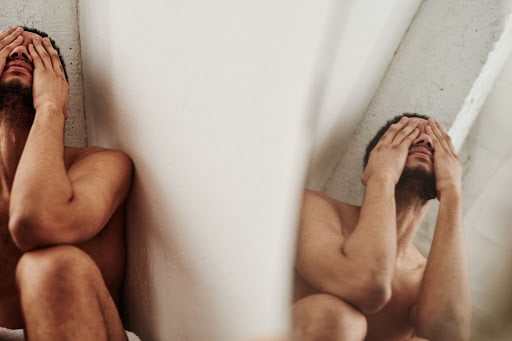Glory Hole STD
Glory Holes: A Place for Sex Workers
Glory holes are more than sex acts where anonymity matters
There’s a lot of talk these days about street prostitution, and for good reason. Many sex workers don’t like the risks associated with buying sex on the street (being robbed or otherwise hurt, being caught by the police), and many people are turned off by its unseemly nature. It can be difficult to get people to understand that using both condoms and public restrooms is actually safer for these women than having them walking around their neighborhood on the streets.
The other approach is to use glory holes.
Glory holes are places where anonymous sex between consenting adults takes place in plain view of one another: the client pays an entrance fee, enters a stall, undresses, waits until he’s seen by his “glory hole buddy,” then either comes out of his stall or makes sure he’s seen before leaving. The glory hole has breathing room as well as privacy—it’s not entirely private—but it does provide better protection than having a woman standing outside in her neighborhood potentially worried about whether her john (pimp) will come out of his house looking for her.
Legal Brothels in Nevada
Not every place in the US, or even every country, has outlawed prostitution. Nevada is the only state that has legal brothels. Sex workers must be 21 or over, and are required to register with the county sheriff, provide proof of residence and US citizenship, get tested for sexually transmitted diseases every two weeks, and pay weekly “bar fees”.
They also have to pay for their own condoms.
Glory holes do present the risk of contracting an STD in states where prostitution is illegal. Therefore, sex workers are not required to have routine STD tests done.
If you have had a sexual encounter with a sex worker in a state where it is illegal, then get tested right away through one of our private, discreet labs.
STD Testing and Mandatory Condom Laws
Many people are concerned about the sexual health of the sex workers and their clients in these establishments. This is an important topic to consider, as there are risks for sexually transmitted diseases that can occur at a brothel. In Nevada, STD testing is required by law for all sex workers in these facilities. Sex workers are required to use condoms at all times. These laws help protect the health of sex workers and their clients.
Since STD testing is required by law for all sex workers in Nevada brothels, you can rest assured that this important health measure has been taken care of before you decide to engage with them sexually. Additionally, since condoms are mandatory during sexual intercourse with a sex worker at a brothel, your chances of getting an STD will be much lower than if you were to have unprotected sex with someone outside one of these facilities or who was not a licensed sex worker practicing within one of them. Your overall risk will still depend on your own personal sexual health and history as well as that of your partner(s).
Sex Workers Deserve Respect
It may be difficult to swallow, but sex work is work. It is a service that people engage in in order to make money. Thus, sex workers deserve the same respect as any other working person. They are not lazy or unintelligent or undeserving of those basic standards we often take for granted. Just because their job may not be your dream job doesn’t mean they don’t have dreams of their own—to pay their bills, get an education and perhaps even pursue their passions outside of their “day” job, just like most others do in this capitalist society.
When you walk into your first glory hole encounter, you might be greeted by a warm and friendly worker, but underneath that may be a history of drug use, abuse, and violence. Sex workers can be vulnerable to sexual violence. Most are afraid to report crimes done against them for fear of being arrested or having their pimps or aggressors assaulting them further. Sex workers have a 45% to 75% risk of being sexually violated at their work.

Everyone deserves a safe and comfortable place to work
Sex workers are not a monolith—they can be male, female, transgender, cisgender, nonbinary. They can be any race, religion, and sexual orientation. Their reasons for doing sex work are their own business. Sex work is work and like other workers, they deserve our respect. Prostitution is legal in some countries; even in places where it’s illegal there are ways that sex workers can do their job without breaking the law. Regardless of legality, they deserve to feel safe while working. This means providing an environment with proper lighting and easy access to medical supplies like condoms (barrier methods lower the risk of transmitting STDs) and hand sanitizer or soap for keeping clean before and after each client.
Glory holes were recommended by New York City Health Department to prevent the spread of COVID-19 where prostitution is illegal. Yes, people who are not prostitutes can use glory holes, but typically they are used by sex workers in order to collect wages. Also, using a glory hole is not 100% effective at preventing a coronavirus infection. It is important to keep these sites safe for all workers. If you suspect you have been exposed to COVID-19 through a sexual encounter, get tested here.
Stay safe during all sexual encounters by washing your hands, sex toys, and genitals before and after sex. Also, use protective equipment, such as male or female condoms and dental dams. Be sure to read some of our other articles to stay alert on the latest STD testing information.
Secure and Confidential
STD testing services
The fastest results possbile - available in 1 to 2 days

Tagged
Categorized As
Author: Esther Jordan
Esther Jordan has been a writer ever since she can remember. She has always loved the free gift of self-expression through journaling, creating stories, and sharing life experiences in front of audiences. Public speaking and creating content has been a strong suit of hers since high school. Immediately after college, she received a paid position as an search engine optimization (SEO) writer in 2010 when SEO was still a very brick and mortar concept for a lot of small businesses. It was a time of do-it-yourself websites and online magic that everyone wanted and either referred to it as SEO or pay-per-click (PPC).




